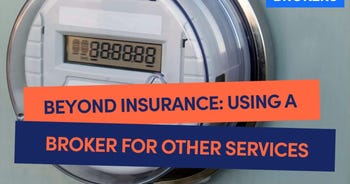How to renew your business insurance and save in 2025/26
If your business insurance renewal date is creeping closer, and you're like most UK business owners, you're probably wondering if the price is going to be hiked up.
Or perhaps you're simply trying to get ahead by comparing prices in case there's a big price rise in your renewal offer.
Either way, you're in the right place.
This guide walks you through everything you need to know about renewing your business insurance, from cutting costs without sacrificing protection to deciding whether to stick with your current insurer or switch to someone new.

Can I reduce my business insurance renewal premium without sacrificing my level of cover?
This is not a straight forward answer, but it’s possible if you consider the following steps:
Start the renewal process early
Begin reviewing your current insurance covers at least 90 days before your renewal date. This gives you proper time to consider whether you have all the cover you need and compare quotes to make an informed decision rather than a rushed one.
According to research from Consumer Intelligence, 81% of SMEs shop around for commercial insurance, but many leave it too late to get the best deals. Starting early removes the pressure and puts you in control.
Show you’re actively reducing risk in your small business
If you want to get quality insurance at the right price, then it’s a good idea to show your broker and insurer that you are taking steps to reduce the risks in your business. You could do this by:
- Installing security systems like alarms and CCTV
- Ensure you have proper health and safety regulations
- Maintaining equipment regularly
- Training staff on safety protocols
- Keeping detailed records of your risk management activities
Document everything. When your insurer or broker can see you're actively reducing risk, they're more likely to offer competitive rates.
Compare quotes from multiple providers
When the time comes to renew, shopping around is key. Different brokers and insurers operate in different sectors with different risk profiles, which means premiums can vary for the same coverage.
Cheap insurance doesn’t always pay. Consider if you have the right types of cover and the right level of cover, not just a cheap price. Look at:
- The types of cover on offer – Do you need public liability and stock? Or a combination of covers?
- Coverage limits and excesses – How much is covered? What will you pay if you need to claim?
- Policy exclusions – What's NOT included
- Service reputation – Check reviews for your broker and insurer to see what other small business owners are saying about them
Consider a package insurance instead of standalone policies
If you need multiple types of cover like public liability, employers’ liability and stock insurance, bundling them with one provider often make sense. It can potentially save you time and cut overall costs.
For example, if you run a shop, then consider a shop insurance policy which can be tailored to whatever you need – from public liability to product liability and even cyber cover.
At Bionic, we offer a range insurance covers designed for different types of businesses, from shops to salons or sole traders, we can talk you through the cover available for your business needs.
Remove unnecessary cover
As your business changes, review what you actually need. Stopped doing certain activities? Reduced stock levels? Always check these are up to date on your policy.
And if you no longer need a specific cover, then if you can, remove it. There's no point paying for protection you don't need.
It’s worth noting that some packaged policies, like shops, include some cover that comes as standard and cannot be removed, like money cover.
Should I renew with my current insurer or switch to a new provider?
Sometimes it makes sense to switch insurer by going through a broker, but there are pros and cons for both.
Benefits of staying vs switching
Staying with your current insurer often means easy, automatic renewals. Many brokers will notify you when you’re coming up for renewal and automatically take care of this for you. This means minimal admin for you and no chance of being caught out without cover.
Although this takes a bit more thought, switching can often give you different premiums that may be lower. Some brokers have access to many different insurers, meaning they can find the right cover for your business type.
Because your broker asks questions about your business, they can offer suitable covers for your specific needs, to help you decide.
Speaking to a broker gives you an up-to-date overview of the types of cover available now, this is especially important if your business has changed in any way over the year.
For example, you’ve hired a few more people – a new quote can include employer’s liability cover for those extra employees, keeping your cover up to date cover.
When to use a broker instead of going direct
Brokers normally have access to a range of insurers, who negotiate on your behalf to find you the right deal. They're particularly valuable when:
- Your small business has complex risks – For example, you are a plant shop that has a cafe
- You need specialist coverage – For example, you offer aesthetic treatments in your salon with specific risks outside of normal public liability
- You don’t know what cover is an option for you – A broker can talk you through your options so you can decide.
- You're time-poor – If you don’t have time to speak to multiple insurers and want someone to take care of it for you
How do I switch insurance providers without gaps in cover?
Any gaps in cover would mean your business is uninsured for a period of time.
This means you may not be covered if an unforeseen event happens during that period. To avoid this, consider the following:
- Purchase your new insurance before cancelling the old policy. With Bionic you can arrange your next policy up to 30 days in advance.
- Align start dates so there's no gap in coverage
- Cancel your old policy with the relevant broker/insurer
- Keep any documents from both policies safe
Never let your current policy lapse before the new one starts. Even one day without employers' liability insurance can result in a £2,500 fine. These fines are daily and can quickly add up.
Why has my business insurance premium increased at renewal?
It isn’t unusual for business insurance premiums to increase when you come to renew, even if you haven’t had any claims.
Another rising cost can be frustrating, but sometimes this is just an increase in inflation or due to market conditions.
Understanding why prices rise can help you make sense of whether you are being ripped off whether the yearly increases are fair.
If you've had any claims, this could increase your premium
Since you can’t escape risks completely, when an accident happens and a claim is made, this can impact how risky your insurer sees your business.
Even one claim could affect your renewal premium, and the more you make (or are made against you) the more your next policy might cost.
It’s important to remember that not all claims will hold the same weight.
For example, if you are a painter with a workshop and you put in a large theft claim, this may affect you more than a small claim for accidental damage to a customer’s coat.
Inflation can drive up costs
When inflation drives up costs, insurers are likely to pay more to settle claims.
For example, if labour, materials, and repair costs all increase, then the costs for repairing building damages goes up. This means it ends up costing insurers more.
Cos Kamasho, insurance data manager at BCIS, says an there was an average increase of 3.8% in reinstatement costs in the year to January 2025.
Reinstatement costs refer to how much the total costs are for insurers to pay to repair the damages.
If insurers have to pay out more for costs, then it’s likely they are going to pass these costs onto customers, through premium rises. This means you might have to pay more at renewal.
Business growth and changes
Has your turnover increased? Hired more staff? Expanded to new premises? Added other services like delivery?
All these positive changes could raise your risk profile from an insurer's perspective.
More revenue means bigger potential business interruption claims. More employees mean you could be at more risk of employees claiming against you too.
Like with any other area, growing your business normally comes with high costs, and this is no different when it comes to premium increases.
Market conditions
Market conditions can influence the cost of insurance premiums (another way of saying the cost of your policy) – see our insurance jargon buster for more info).
The Ivans Index shows the cost of business owners premiums are up year on year, with commercial property going up 10.52%.
When you're in a "hard market", premiums rise across the board regardless of individual circumstances.
On the other hand, when you’re in a “soft market” you tend to see premiums decreasing and lots of insurers competing for business.
Insurer appetite changes
When we talk about ‘appetite’ we mean the specific type of risk an insurance company is willing to take on. Not all insurers will offer everything, in fact, they can be very selective.
Sometimes insurers may exit certain markets or risk categories entirely.
If your insurer decides your business type no longer fits into what they offer, they might not offer you a competitive renewal quote.
In this case, it might be worth speaking to a broker to see if there are any insurers who are better suited to your industry and may offer you a better deal.
Making your renewal decision
Now you understand a bit more about business insurance renewals, you can make an informed decision on yours.
Remember these key points:
- Give yourself time - don’t leave your renewal to the last minute to explore options
- Consider multiple quotes for comparison and think about using a broker
- Think carefully about sacrificing the right coverage for lower premiums
- It’s a good idea to get new cover in place before cancelling old policies to avoid gaps in cover
What if I don’t want to renew with my current insurer?
Your insurer or broker should make it easy for you to cancel your renewal - just contact them to confirm you want to cancel. This process varies for different providers, so ensure you get written confirmation that your renewal has been cancelled – this may be by email.
Compare business insurance quotes with Bionic
While it’s normal for your renewal to cost you a bit more, if it’s been hiked then you may want to consider looking elsewhere for better value.
If you're feeling overwhelmed on where to start, consider working with a broker.
At Bionic, we help compare business insurance quotes and find cover that fits their needs and budgets. We work with multiple providers to give you choice and competitive quotes.
Don't leave it until the last minute. Start your renewal process today by starting a quote online.








